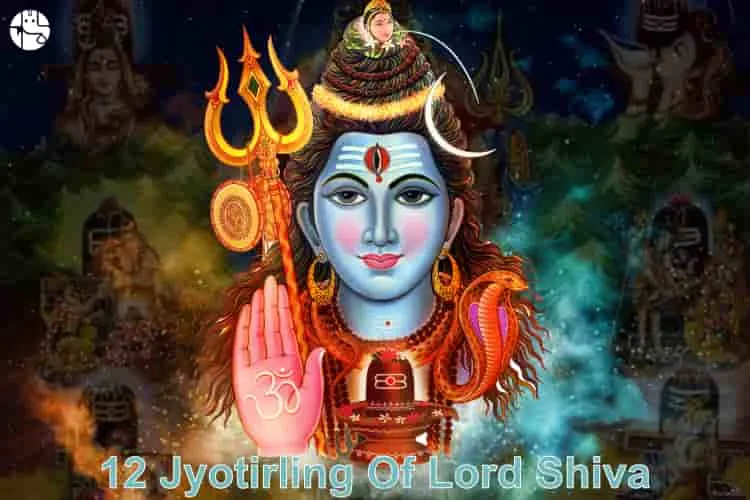A Jyotirlinga refers to a divine representation of Lord Shiva. In a literal sense, it denotes the Radiant Sign of The Almighty Shiva. These temples represent the fact that Shiva appeared as an angry column of light when he, as per Shiva Mahapurana, argued for supremacy with Brahma and Vishnu to settle the debate. The column of light is said to cool down into the Holy Mountain Annamalai.
Know More About Hindu traditions and Hindu Astrology
The 12 Jyotirlinga Story
It is said there were 64 jyotirlingas originally, but only 12 of these are considered the most auspicious and holy. All 12 Jyotirlingas have been named after the names of presiding deities. Each of the above is believed to be a different manifestation of Shiva. Every site has a primary lingam which stands for the beginningless and the endless pillar named the Stambha, which refers to the seamless Shiva.
12 Jyotirlingas of Lord Shiva
Somnath Jyotirlinga Temple in Gir Somnath, Gujarat
It marks the beginning of the Dwadashi Jyotirlinga pilgrimage and is considered the first site of the same. The temple has been rebuilt 16 times and has a rich history associated with it.
Mallikarjuna Jyotirlinga Temple in Srisailam, Andhra Pradesh
It is also known as the Srisaila and houses the Mallikarjuna in an architecturally rich ancient temple. The Jyortirlingum and the Shakti Peetha are usually kept together.
3. Mahakaleswar Jyotirlinga Temple in Ujjain, Madhya Pradesh
The lingam at Mahakal is believed to be Swayambhu, which is only one of the 12 sites. It is said that Shree Rudra Yantra is hanging upside down in the main inner temple.
Mahakaleshwar Jyotirlinga Temple in Ujjain, Madhya Pradesh
It is believed that the lingum which is at Mahakal is Swayambhu which is only one of the 12 sites. It is said that Shree Rudra Yantra is hanging upside down in the main inner temple.
4. Omkareshwar Jyotirlinga in Khandwa, Madhya Pradesh
It is placed on an island in the Narmada River.
5. Kedarnath Jyotirlinga in Rudraprayag, Uttarakhand
An ancient temple resting in snow-clad ranges of the Himalayas can be accessed only for six months annually. It has a rich legend associated with it. It is said Lord Shiva took the form of a boar and had given in to Earth at this place only to appear at Pashupatinath.
6. Bhimashankar Jyotirlinga in Maharashtra
This is mired in controversies as many temples are considered the Bhimashankar per different scriptures.
7. Vishwanath Jyotirlinga in Varanasi, Uttar Pradesh
It is considered the most sacred shrine to Hindus and is considered the holiest of all the Shiva temples. The name of the main deity is Vishwanath.
8. Trimbakeshwar Jyotirlinga in Nashik, Maharashtra
This is linked with the origin of the Godavari River.
9. Baba Baidyanath Dham Jyotirlinga in Deoghar, Jharkhand
This is also a sacred abode of Shiva and has one main temple of Baba Vaidyanath and 21 other temples.
10. Nageshvar Jyotirlinga in Dwarka, Gujarat
It also finds mention in the Shiva Purana.
11. Ramanathaswamy Jyotirlinga in Rameshwaram, Tamil Nadu
It is the southernmost Jyotirlinga temple in India and has the Ramesvara pillar.
12. Grishneshwar Jyotirlinga in Ellora, Maharashtra
It is also called the Dhushmeshwar Temple and again finds its mention in the Shiva Purana.
Every jyotirlinga is described by a specific shloka linked to it.
Importance of Jyotirlinga Darshan
It is a common and cherished Hindu belief that anybody who visits the Jyotirlinga temples will definitely attain salvation and enlightenment. The Jyortirlingum literally means a Lingum of Light, which is considered highly auspicious and has a rich history and associated legends. One should visit at least once in one’s lifetime to get the true blessings of Lord Shiva.
In order to know more about the significance of Jyotirlinga Darshan, Talk To Our Expert Astrologer.

